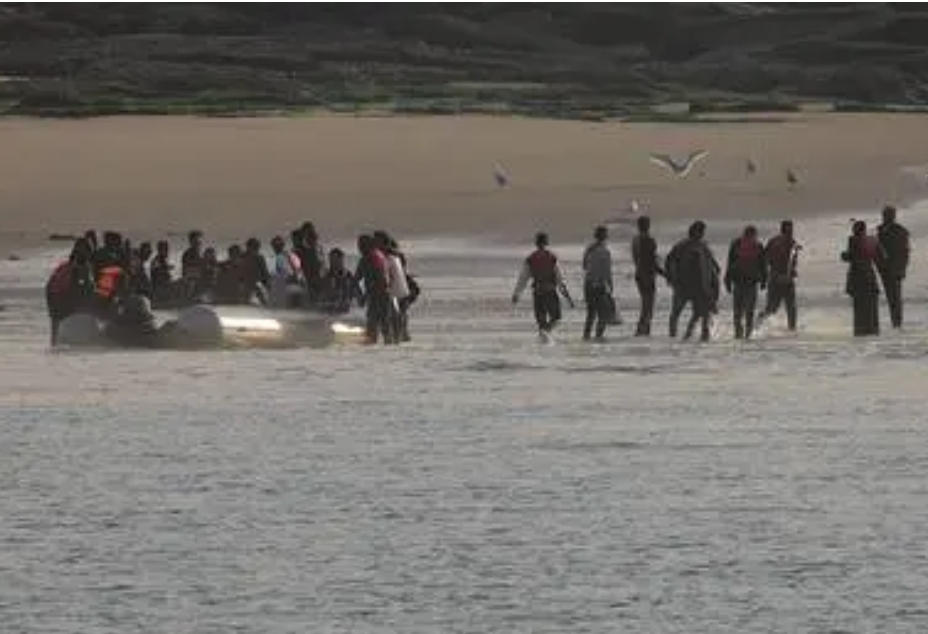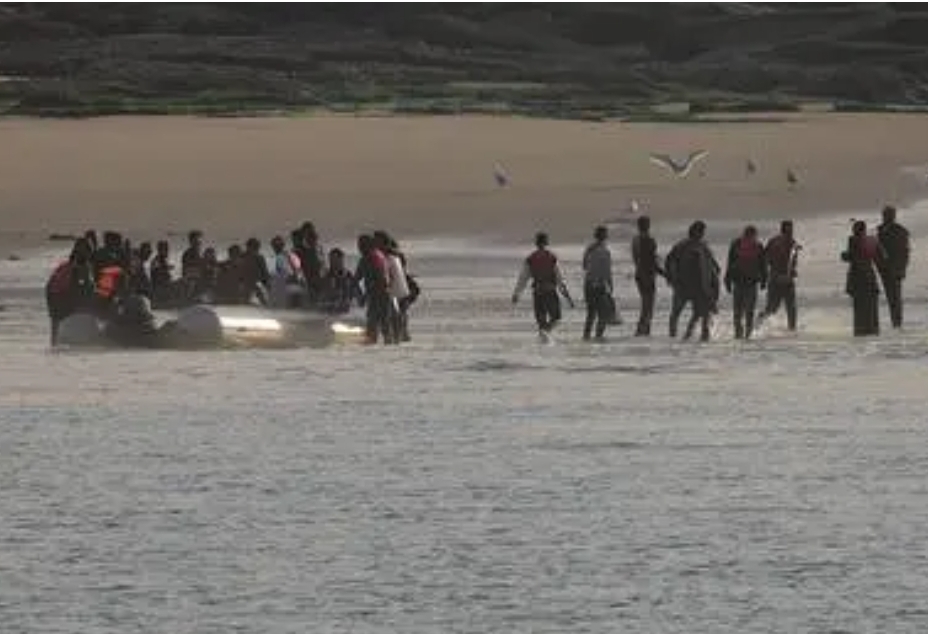
About 24,000 migrants have made the crossing so far this year. Photo credit: Reuter’s
The UK government’s plan to deport migrants to Rwanda is facing a legal challenge from asylum seekers who say it is unlawful and puts their lives at risk.

According to a report by The National on Monday, October 9, 2023, the policy, announced in April 2022, would see some asylum seekers sent to Rwanda on a one-way ticket, to claim asylum there or in another “safe third country”. The government says the plan will deter people from arriving in the UK through “illegal, dangerous or unnecessary methods”, such as on small boats which cross the English Channel.
However, the policy has been blocked by the Court of Appeal, which ruled in June 2023 that Rwanda is not a safe third country because of “deficiencies” in its asylum system which mean that some claimants could be sent back to their home countries, where they might face persecution.
The court also said that the policy breaches Article 3 of the European Convention on Human Rights, which prohibits torture and inhuman treatment.
The Home Office is appealing against the ruling to the Supreme Court, which will hear the case on Monday. The Home Secretary, Suella Braverman, has said it is her “dream” that the policy will be implemented. Rwanda has already been paid £140m even though no one has been sent there so far.
The legal challenge is brought by 10 asylum seekers from Syria, Eritrea and Sudan, who arrived in the UK after 1 January 2022 and are threatened with deportation to Rwanda. They are supported by Asylum Aid, a charity that provides legal advice and representation to refugees.
The asylum seekers argue that the Home Secretary failed to consider the dangers and risks of sending them to Rwanda, where they have no ties or connections. They say they fled from war, violence and human rights violations in their home countries and fear being returned there if they are sent to Rwanda.
They also claim that the policy is discriminatory and arbitrary, as it only applies to those who arrived in the UK after 1 January 2022, regardless of their individual circumstances or reasons for seeking asylum.
One of the claimants, a Syrian man who asked not to be named, said: “I came to the UK because I thought it was a safe and democratic country that respects human rights and international law. I was shocked when I received a letter saying that I will be sent to Rwanda.”
“I don’t know anything about Rwanda. I don’t speak the language. I don’t have any family or friends there. How can I survive there? How can I claim asylum there? I am very scared that they will send me back to Syria, where I will be killed.”
Asylum Aid’s director, Sonia Lenegan, said: “The Rwanda policy is a cynical attempt by the government to outsource its responsibility to protect refugees. It is unlawful, immoral and inhumane. It puts vulnerable people at risk of further harm and violates their rights. We hope that the Supreme Court will uphold the Court of Appeal’s decision and put an end to this cruel policy.”
The UN’s refugee agency, which advised the court on matters of international refugee law during the appeal, also urged the UK government to “pursue other measures” instead of sending asylum seekers to Rwanda.
A Home Office spokesperson said: “We make no apology for seeking to fix a broken asylum system that costs taxpayers over £1bn per year and encourages dangerous journeys across the Channel.
Our New Plan for Immigration will ensure we can provide protection to those who need it while preventing abuse of the system and criminality associated with it.”




